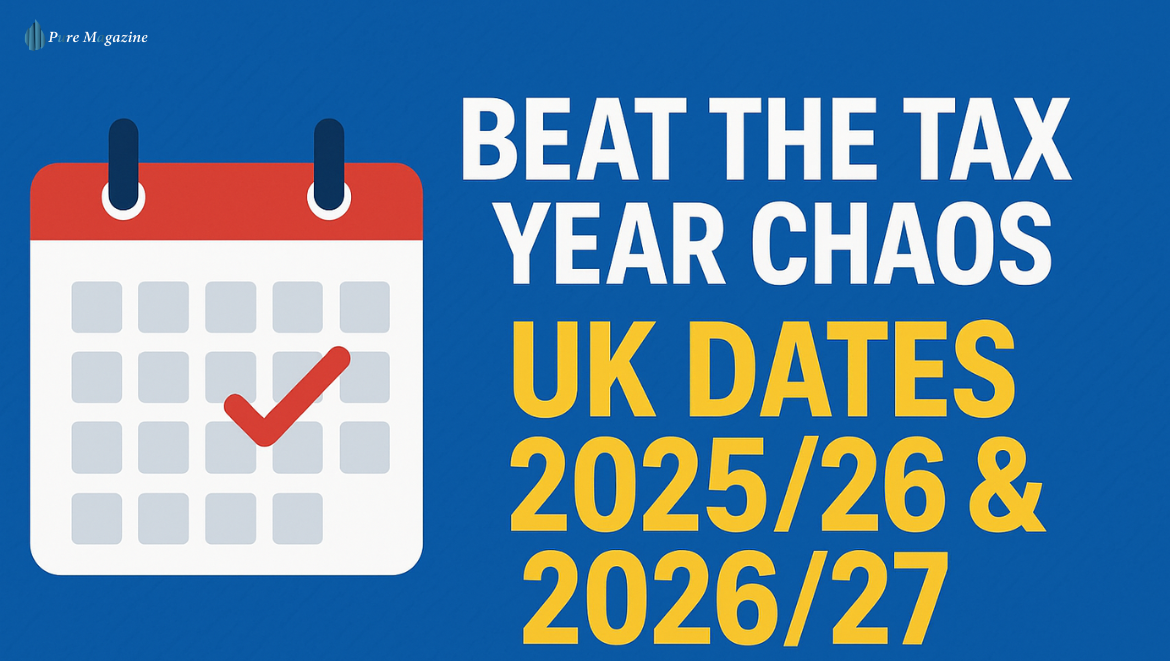Everyone knows the UK tax year dates runs from April 6 to April 5, but ask most people about it and you’ll get a blank stare. For some, it’s just a dreaded set of deadlines; for others, it’s chaos wrapped in paperwork. But for Jamie and her mate Olly, the tax year became a secret weapon to keep their finances on track—and their stress levels down.
The Tax Year Isn’t a Threat, It’s a Rhythm
Jamie always used to moan about HMRC emails showing up like uninvited guests. “It’s all forms and numbers,” she’d say, shaking her head over her morning coffee. Olly, on the other hand, treated deadlines like checkpoints in a video game—if you pass them on time, you unlock peace of mind.
The UK tax year might sound stiff, but in reality, it’s just a rhythm. April to April. Deadlines aren’t punishments—they’re markers, nudging you to check in with your finances and plan. Miss one, and yes, it bites you back. Hit them on time, and suddenly the whole year feels smoother.
Deadlines That Don’t Have to Freak You Out
For freelancers and small biz owners, the dates are notorious. October 5th? Last call to register for self-assessment if you’re new. October 31st? Paper returns are due. January 31st? The big online submission and payment day.
Jamie used to freak out on January 31st like it was Armageddon. Olly, though, had a simple tactic: he sorted his receipts in November, filed early, and treated January as a celebration of crossing the finish line rather than a panic button. “It’s just another day to check your stuff,” he’d shrug, sipping a flat white.
For businesses, it’s the same deal. Corporation tax, accounting periods, and Companies House filings can feel like juggling flaming torches—but chunk them into milestones, and it’s manageable. Miss one? Lesson learned. Plan it right? Smooth sailing.
Turning Tax Dates into a Growth Hack
Here’s the twist that Jamie discovered: the tax year can actually be a tool to grow your money and your business.
- It forces a financial check-in
- It gives small business owners a rhythm for cash flow planning.
- It gives freelancers like Jamie a moment to reflect on income, spending, and saving.
Instead of taxes being a chore, they became mini checkpoints in her life. Filing wasn’t a nightmare—it was a moment to take stock and plan the next few months properly.
Learning From Mistakes (and Laughing About It Later)
Olly once ignored a Companies House reminder and got a fine. He was gutted at first, but it forced him to sort out reminders, calendars, and a simple routine. Now he laughs about it: “I paid the fine, learned my lesson, and now I’m basically a tax ninja.”
Jamie’s takeaway? Mistakes happen. Missing a deadline is human. But building habits—setting reminders, checking your inbox, keeping receipts in order—makes all the difference.
Tips That Actually Work (Without Feeling Like a Bore)
- Think of deadlines as checkpoints, not punishments.
- Visual reminders work wonders—calendar, phone, sticky notes, whatever keeps it in your face.
- Use apps and online services—HMRC, TaxFix, Sage. They save a ton of faff.
- Reflect at each milestone—don’t just file and forget. Take stock of what’s working, what isn’t.
When Jamie started treating the tax year like a rhythm instead of a terror, the difference was massive. Less panic, more clarity, and a little swagger knowing she had it under control.
FAQs
Q1. When does the UK tax year run?
The UK tax year kicks off on April 6 and wraps up on April 5 the following year. Simple as that. Knowing this rhythm helps folks plan rather than scrambling at the last minute.
Q. What are the key deadlines to watch out for?
The biggies are:
- October 5: Register for self-assessment if you’re new.
- October 31: Paper returns due.
- January 31: Online returns and payments
Businesses also need to keep an eye on corporation tax and Companies House dates. Miss one and you could be paying more than you bargained for.
Q. What happens if someone misses a deadline?
Expect fines and maybe a bit of interest from HMRC. Businesses could face penalties from Companies House too. But no need to panic—fix it, set reminders, and next year will run smoother.
Q. Can the tax year actually help me plan my finances?
Definitely. Think of deadlines as mini milestones. They’re perfect for checking spending, saving, and even adjusting business strategies. For Jamie and Olly, deadlines became life hacks rather than stress triggers.
Q. Are there tools to make tax life easier?
Loads! HMRC online services, TaxFix, GoSimpleTax, and Sage can save a ton of faff. Even simple calendars or phone reminders work wonders. The secret is staying consistent and treating deadlines like checkpoints, not punishments.
Conclusion: Own Your Tax Year, Own Your Calm
The tax year dates aren’t there to scare anyone—they’re a tool. Used right, they give structure, clarity, and a tiny bit of life hack magic. Jamie and Olly aren’t stressed every April and January anymore. They’ve turned deadlines into milestones, mistakes into lessons, and forms into a routine that actually makes sense.
The moral? Don’t fear the tax year. Use it. Own it. And maybe, just maybe, sip your coffee with a grin instead of a grimace.
Visit: Pure Magazine








